The mid-morning sun beats down mercilessly on Awal Seidu as he trudges along the banks of the Korle Lagoon, a bag slung over his shoulder.
The 45-year-old waste picker scans the heaps of unsegregated trash at the landfill site, searching for scraps of copper to sell.

The temperature in Accra hovered at 32 degrees Celsius, but it felt even hotter.
For Awal, with his sweat-drenched shirt clinging to his skin, the heat is more than just uncomfortable, it’s a threat to his livelihood.

A father of seven from Sokoto, Nigeria, Awal came to Ghana two years ago to find work.
Each day, he braves the soaring heat, collecting discarded metals that can be melted into copper and other materials.
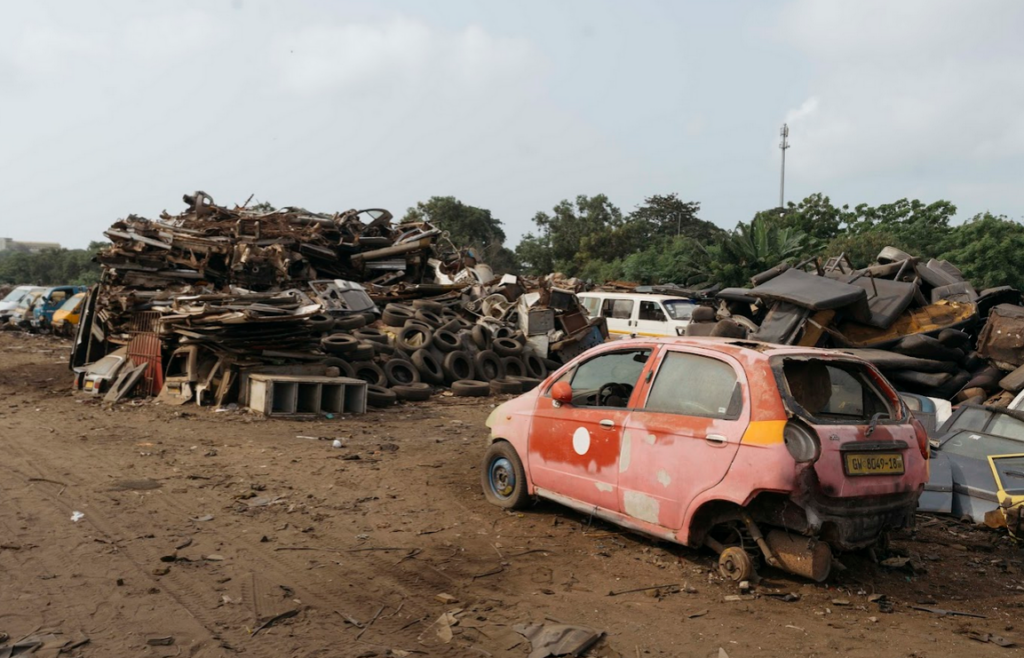
His earnings, ranging between GH₵80 and GH₵100 ($5.10–$6.40) a day, barely sustain him.
“The heat is getting worse,” he said. His daily water consumption has doubled, cutting into his already meager earnings.
Yet, he has no choice but to endure. If he doesn’t work, his family back home goes hungry.

Across the city, at the GAYO Material Recovery Facility in La, Madam Pat, a seasoned waste picker, sorts through plastics.
Her routine has changed drastically. The intensifying heat has forced her to split her workday, starting early in the morning, stopping by noon, and resuming in the evening.

“Before, I could fill up to three nets a day. Now, I barely make one and a half. The heat is too much,” she said.
The impact goes beyond income losses. Frequent headaches, rashes, and exhaustion have become the norm.
“At the initial stage, I used to develop headaches, colds and rashes on my skin. But I don’t get them anymore,” she said.
Mary Akweley, 27, another waste picker, now relies on a makeshift canopy for shade, yet the scorching sun still takes its toll.

“Without this shade, we wouldn’t be able to work at all. The heat has become unbearable,” she says.
The Makola Market, the heartbeat of Accra’s commerce, tells a similar story.
Nora Afia Nyarkoah, a 35-year-old street vendor, sells snacks under the open sun.
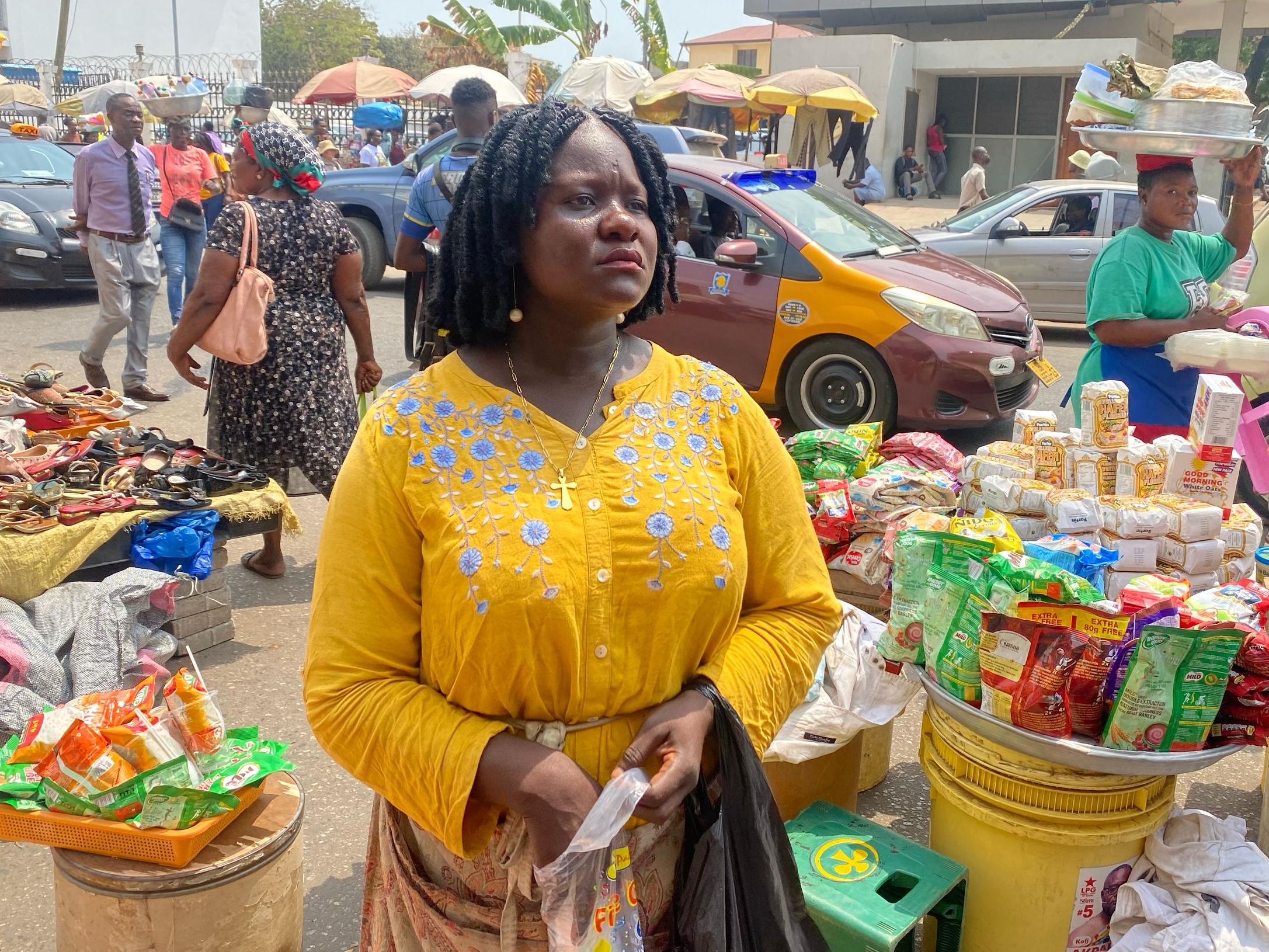
She cannot afford an umbrella. This is because her make-shift stall is positioned directly in front of a bank, where mounting any structure is forbidden.
“Last week, I couldn’t come to work at all,” she confesses, noting that the heat saps her energy and kills sales.
Nearby, 59-year-old Auntie Faustie fans herself under a large umbrella, her hat providing some relief from the sun.
She took a more spiritual approach.

“God in his divine wisdom gave black people more melanin with the ability to withstand heat,” she opined.
While she remains optimistic that the rains will bring cooler weather, she acknowledges the toll the heat has taken on her business.
She believes the intense heat is seasonal, a test of endurance that will pass with the rains in June.
But for thousands of informal workers like Awal, Pat, and Nora, waiting for rain is not an option.
In February 2024, the Ghana Meteorological Agency (GMet) issued an alert for locals to prepare for scorching weather conditions as temperatures were set to rise significantly in the coming days.

GMet forecasted a surge in temperatures across the country as the sun moves towards the equator, peaking on March 20, 2024.
Subsequent data showed high temperatures all year round, with heatwaves expected to worsen in the coming years.
Record-breaking heat in the Gulf of Guinea has persisted relentlessly for nearly six months, showing no signs of abating. During the week of the Accra visit [February 18], Kumasi, the nation’s second-largest city, experienced a staggering minimum temperature of 26.8°C, marking one of the highest February minimums ever recorded in the country.
GULF OF GUINEA RECORD HEAT
Record heat in the area has been going on for 5 months and it seems never ending.
More records today of February highest minimums:27.4 Benin City NIGERIA (also very close to February highest minimum national record!)
26.8 Kumasi GHANA pic.twitter.com/NcVYqQ7KmX— Extreme Temperatures Around The World (@extremetemps) February 18, 2025
In Nigeria, Benin City’s minimum temperature soared to 27.4°C, dangerously close to the national record for February.
The situation escalated further as temperatures skyrocketed later in the day, with Sansanne Mango in Togo reaching a scorching 43.4°C, shattering the country’s record for the hottest February day in history.
HISTORIC HEAT IN AFRICA
43.4C at Sansanne Mango today destroys the
HOTTEST FEBRUARY DAY EVER RECORDED IN TOGOAfrica immediately answers to the extraordinary 43.5C of Mexico few days ago. All tropics are with unprecedented heat. https://t.co/0SFE93xpnp
— Extreme Temperatures Around The World (@extremetemps) February 18, 2025
This unprecedented and unrelenting heatwave is a dire warning of the accelerating climate crisis, with devastating implications for the region’s ecosystems, agriculture, and public health.
Director of the Institute for Environment and Sanitation Studies at the University of Ghana, Prof. Christopher Gordon worries about the critical impact of climate change, describing it as a “multiplier of problems.”
He said this at a workshop in Accra on extreme heat for African journalists, organised by Climate Resilience For All.
Prof. Gordon highlighted rising temperatures as a major concern that must be urgently addressed.
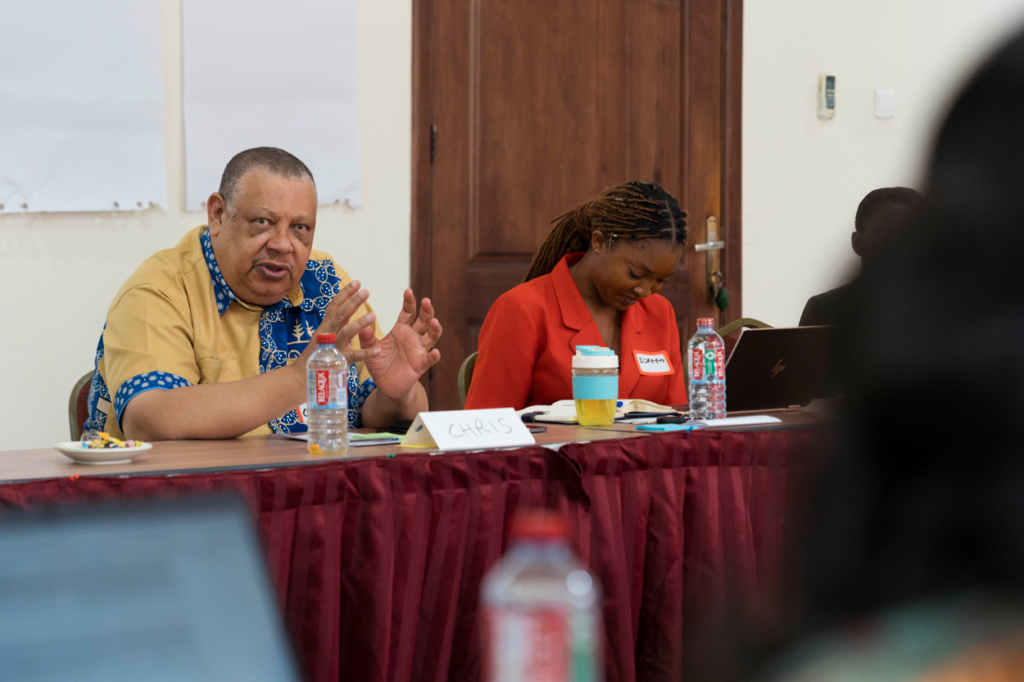
He explained that extreme heat exacerbates existing environmental and socio-economic challenges in parts of Ghana.
The workshop aimed to equip journalists with knowledge and tools to effectively report on climate change and its effects, particularly in Africa, where rising temperatures continue to pose significant threats to livelihoods and public health.
Award-winning journalist and Extreme Heat Editor at Climate Resilience For All, Laurie Goering, also emphasized that heat-related issues should not be treated merely as weather reports but as critical stories on their own.
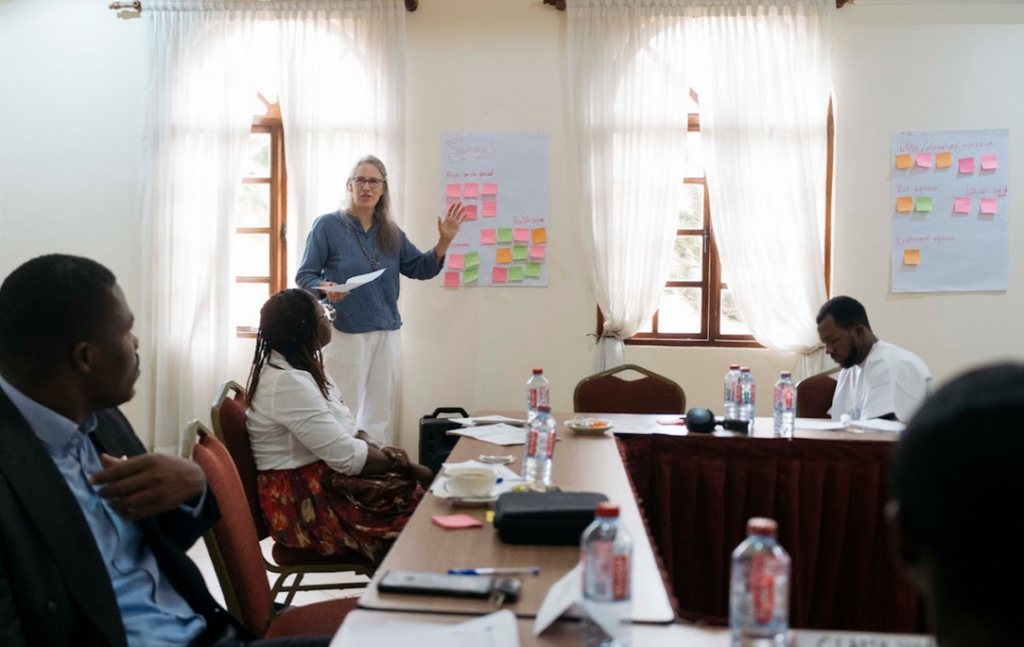
She highlighted the far-reaching impact of extreme heat on health, economies, and daily life while urging journalists to explore the broader implications of rising temperatures, particularly in vulnerable communities.
The workshop which spanned February 10-12 equipped journalists with the skills to report on extreme heat more effectively, shedding light on its consequences and potential solutions.
Without urgent interventions, Ghana’s informal workforce, comprising millions of vendors, waste pickers, and laborers, will continue to bear the brunt of climate change, unseen and unheard.
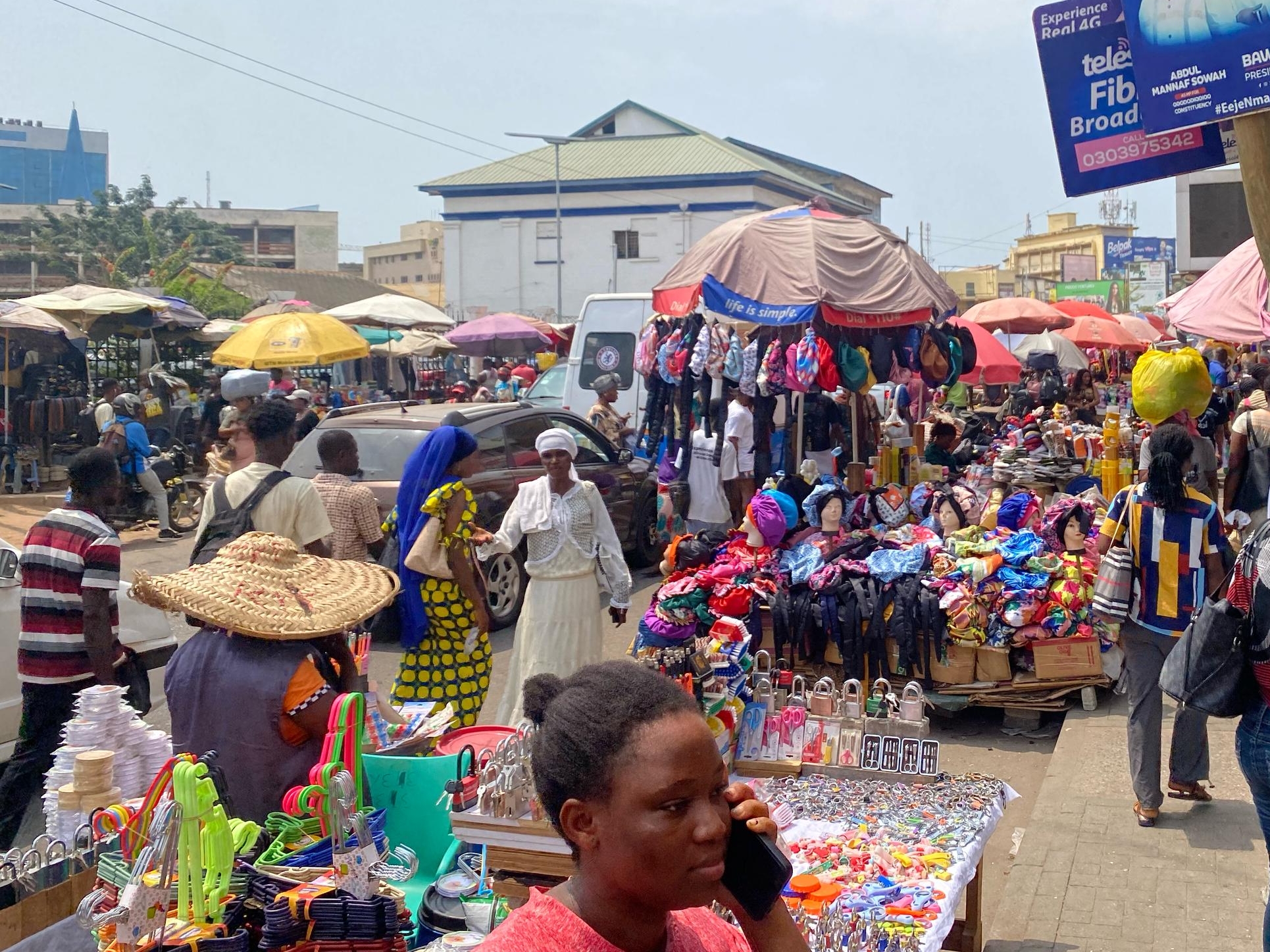
As Freetown unveils Africa’s first Heat Action Plan, Ghana must follow suit, ensuring that the people who keep the city running don’t collapse under the weight of the sun.
For Awal, Pat, and Nora, survival is no longer just about hustling hard, it’s about outlasting the heat.
Photographs shot by Ernest Ankomah.
The author, Kenneth Awotwe Darko is a multimedia journalist, tech, culture, and climate enthusiast and social media analyst.
Follow him on Twitter via @TheKennethDarko and on Facebook, Kenneth Awotwe Darko.
Email: Kenneth.darko@myjoyonline.com
DISCLAIMER: The Views, Comments, Opinions, Contributions and Statements made by Readers and Contributors on this platform do not necessarily represent the views or policy of Multimedia Group Limited.



